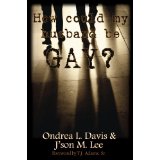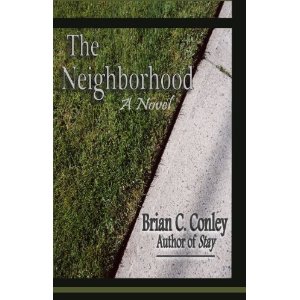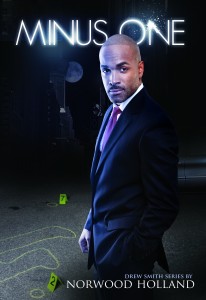Book Review: How Could My Husband Be Gay by Ondrea L. Davis and J’son M. Lee
October 20, 2011
 How Could My Husband Be Gay? is an autobiographical account of Ondrea L. Davis’ brief failed tumultuous marriage as penned by J’son M. Lee. There are three sides to every story, in this instant his, hers and the truth. Since this story presents only her side, the reader is forced to glean the truth from the facts given while questioning the authors’ motives for telling this deeply personal and painful story. This book is not intended to be a predictor of recognizable signs for determining or verifying suspicions of a gay husband. It is rather a moral tale of the consequences of deceit and deception.
How Could My Husband Be Gay? is an autobiographical account of Ondrea L. Davis’ brief failed tumultuous marriage as penned by J’son M. Lee. There are three sides to every story, in this instant his, hers and the truth. Since this story presents only her side, the reader is forced to glean the truth from the facts given while questioning the authors’ motives for telling this deeply personal and painful story. This book is not intended to be a predictor of recognizable signs for determining or verifying suspicions of a gay husband. It is rather a moral tale of the consequences of deceit and deception.
In the beginning the wedding offers hopes of a bright and beautiful future despite troubling signs. The groom and his mother both attempt to upstage the bride on her day. The author paints a picture of a self centered husband controlled by his mother and leading a double life. Supposedly a devout Christian his duties as husband and father become secondary to his own desires. The reader is taken on a journey including a blissful honeymoon; establishing a household, child birth and growing financial woes. Except for the husband’s homosexual tendencies this story would appear common to many marriages where one becomes disinterested and consequently withdrawn from the family. The difference here is this man’s interest lay with other men.
He finally confesses his homosexual life after the termination a marriage that seems to have lasted less than five years but long enough to produce three children. The husband’s flawed character becomes manifest when he’s convicted of fraud in his employment. Both in his domestic and work life he appears prone to deceit. The books clearest message can be found in the next to last paragraph:
“If we cannot be honest with ourselves and the person we choose to marry, we can never be genuinely happy. This is virtually impossible because our entire existence with that person would be built on a foundation of deceit. It is grossly unfair to our potential spouse and any children that are born of that union. It takes a real man (or woman) to think ahead and choose not to be the source of anguish, stress and regret for another person.”
Ondrea Davis’ reliance on faith and pastoral counseling only delays the marriage’s ultimate demise. Many single parents, husbands and wives alike may identify with her heartbreak and the experience of an unfaithful spouse who abandons the marriage. The authors do a good job of giving expression to that experience and for that purpose its recommended reading. But moreover I suspect it’s about settling a score absent forgiveness. Such a practice is generally frowned upon as it distracts from message and loses credibility and for whatever pleasure it brings the writer it can only do more harm to the family. 4 Stars
Disclaimer: This information and review are the opinions of the individual reviewer. Black Literature Magazine cannot be held accountable. The reviewer takes full responsibility for the information and opinions presented.
The Neighborhood by Brian C. Conley
October 20, 2011
 The Neighborhood Brian Conley’s second novel memorializes his old neighborhood Forest Heights Park in Baton Rouge Louisiana. It’s a fictional account–a combination of mystery and coming of age tale. The novel varies to some degree from the standard whodunit formula nevertheless it is full of colorful quirky characters and dysfunctional families. The first half is devoted to getting to know the victim 14 year old Bridget and her circle of friends particularly smitten suitors Deucy and Kyle. Bridget a lovely dark skin girl is Charles Thibadeaux’s daughter born out of wedlock to a woman not his wife but his true love. Bridget’s mother dies forcing Charles to bring her to live with his wife and two daughters of the approximate same age.
The Neighborhood Brian Conley’s second novel memorializes his old neighborhood Forest Heights Park in Baton Rouge Louisiana. It’s a fictional account–a combination of mystery and coming of age tale. The novel varies to some degree from the standard whodunit formula nevertheless it is full of colorful quirky characters and dysfunctional families. The first half is devoted to getting to know the victim 14 year old Bridget and her circle of friends particularly smitten suitors Deucy and Kyle. Bridget a lovely dark skin girl is Charles Thibadeaux’s daughter born out of wedlock to a woman not his wife but his true love. Bridget’s mother dies forcing Charles to bring her to live with his wife and two daughters of the approximate same age.
Charles Thibadeaux is a pillar of the community and by introducing his dark skin child into his perfectly blue vein bourgeois household it antagonizes his wife with dividing loyalties between their daughters. Like Cinderella dealing with an evil step mother and one evil step sister Bridget copes focused more on her desires for Kyle. With a discontent wife Charles Thibadeaux is driven to drink. Bridget’s celebrates her 14th birthday with a community pool party ending with her mysterious death. Vigilante neighbors go into action, secrets of past scandalous behavior are revealed while dredging up old resentments. The Neighborhood touches on themes of jealousy, sibling rivalries, colorism, and religious hypocrisy. Full of vivid details and richly drawn characters most of whom have issues Conley captures the experience of the provincial Southern African-American community and small town pathos.
The ability to use the different points of view is one measure of a person’s writing skill. While the general rule is for novels to adopt a single approach to point of view throughout, there are exceptions. Conley takes exception with perhaps too many points of view but when it comes to good writing he exhibits extraordinary skill as an evolving talent. The author does a great job, but I wonder how much better this tale would be with a cohesive narrative voice. There are currently too many young new writers publishing a too much pulp, but the cream rises to the top and Brian Conley on his way up. You can bet he won’t go unnoticed for long. I highly recommend The Neighborhood with great anticipation for his next. 5 Stars
Disclaimer: This information and review are the opinions of the individual reviewer. Black Literature Magazine cannot be held accountable. The reviewer takes full responsibility for the information and opinions presented.




